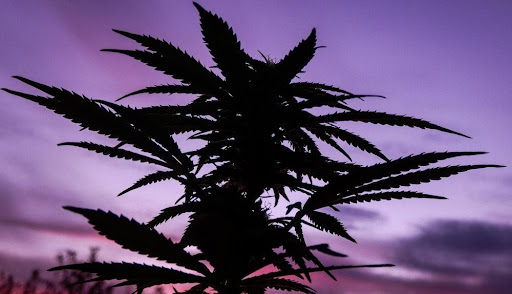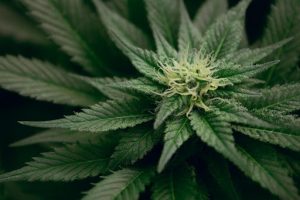Cannabis growing is getting ever more popular among usual consumers, as it offers a unique alternative to the expensive and addictive antidepressants and painkillers to which millions of people get hooked today. The main reason is a wide variety of weed’s therapeutic properties, such as pain relief and an ability to combat stress and anxiety. Thus, more and more people enjoy the opportunity to cultivate a couple of plants for themselves and have a regular supply of weed to address their health issues.
However, the art of growing weed is a bit more complex than planting a flower or a tree in your backyard. Weed plants are dioecious, which means that they develop into male or female plants, with only female plants delivering the therapeutically valuable buds with cannabinoids. Besides, weed seeds are distinguished as regular, feminized, and autoflower, each with its own growing specifics, pros, and cons. Thus, it is vital for aspiring growers to learn the ropes of weed cultivation first, being able to go through the process from seed to harvest. And the initial point they need to decide on (if they plan continuous weed cultivation) is whether they will use seeds or clones for planting. This article walks you through this distinction and clarifies which variant suits which situations.
Seeds vs. Clones
First, let’s clarify the difference between seed and clone cultivation, which may become a starting step in the decision-making process. Growing from a seed is lengthier, as a grower needs to start the process from the very beginning, by germinating a seed first, then transplanting the sprout into soil, watching the seedling to develop, and only then getting some plants for care and management during a vegetative stage.
Another option that many growers find more convenient is growing weed from clones, which are the small cuttings from a mother plant, placed separately to develop a root system and then grow into full-sized plants.
Planting Clones: Pros and Cons
At first glance, working with clones seems more beneficial, as you already have a small plant at your disposal and don’t need to care for the seed’s germination and first stages of development. Indeed, clones are convenient in many aspects:
- You get a plant with a guaranteed female gender. Any plant can become a hermaphrodite if it gets stressed, but we don’t discuss extremes here. In 99% of situations, if your clones are female, they will grow into female plants and won’t cause you any gender trouble.
- Your plant contains the verified, tested genotype you’ve already checked in previous cultivation seasons.
- You get the yields quicker than with developing the plants from seed. Clones grow much quicker and shorten the whole growing process by several weeks.
- It’s much easier to deal with clones; they are not as delicate as seeds.
- Clones represent a ready-made solution for growers with little experience and reduce the risks of failure, which often happens at the initial stages of germination and planting.
However, it would be wrong to consider clones a panacea for all growers. They come with several considerable drawbacks you should know:
- The clones’ root system is weaker than that of usual plants, as they don’t have a taproot. They only develop several secondary roots, which may be not as healthy and strong as your plant needs.
- If your mother plant was sick, the clones will also develop disease. Powdery mildew often attacks clones and surfaces only later, after planting, with no visible signs at the initial stages.
- Your choice is limited to clones’ availability in the local stores or your growing room, while seeds offer greater strain variety.
Planting Seeds: Pros and Cons
You might have probably understood the pros and cons of seeds from the discussion of clones already, but let’s recap them briefly. What’s attractive about growing your weed from seed?
- Seeds grow into plants with a strong taproot, which guarantees their vitality and health.
- You enjoy much greater variety, with the ability to order any strain’s seeds from any online store without bothering about transportation.
- Pests and diseases are not inherited from parent plants to the seeds; new plants may grow healthy if you keep them in optimal conditions.
- Seeds can be stored for months, if not years, until the next growing season.
Still, growing from seeds is not for everyone, and here’s why:
- The growing cycle from seed to harvest takes way more time than growing from clones. If you take, for instance, Wedding Cake autoflower https://askgrowers.com/seeds/wedding-cake-seeds-autoflower, you will need to wait 8-10 weeks and beyond to get the harvest of dense, flavorful buds. However, by growing the same strain from clones, you can reduce the time to 5 weeks.
- Germinated seeds are very vulnerable and require gentle, expert treatment. It takes no effort to kill them with one wrong step. Thus, inexperienced growers often make critical mistakes and waste the time and money on these initial mishaps.
- The very stage of seed germination doesn’t end with a success for everyone. Some growers fail to create optimal conditions for their seeds to germinate, which results in money waste and disenchantment. In such cases, growers start their cultivation experiments with clones and then proceed to seeds after mastering the ropes of cannabis cultivation.
Choose Your Own Way
As you can see, both options are workable for various kinds of growers and mostly depend on the cultivator’s experience level and proficiency in working with seeds. Overall, the cannabinoid profile and strength of weed don’t depend on whether the plants were grown from seed or clone, as clones inherit the full genetic profile of their parents and grow in an identical way without causing genotypic or phenotypic variations. Thus, it’s up to you to decide which option is more appropriate for your growing goals, experience, and the time you have until harvest collection.
This article was written by Tia Moskalenko, an expert in weed growing and a blogger at AskGrowers. Tia is passionate about cannabis cultivation and believes that everyone should have access to the therapeutic benefits of weed. She shares her growing tips and publishes insightful reports for everyone wishing to dive deeper into the world of cannabis cultivation.

















